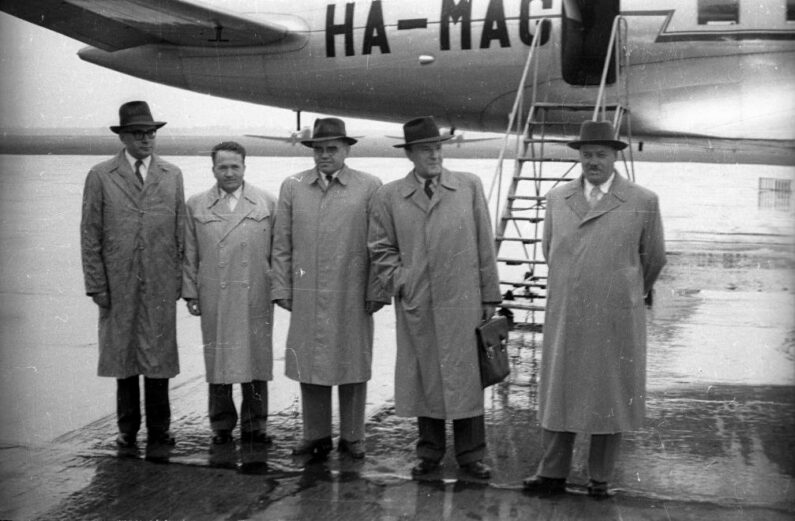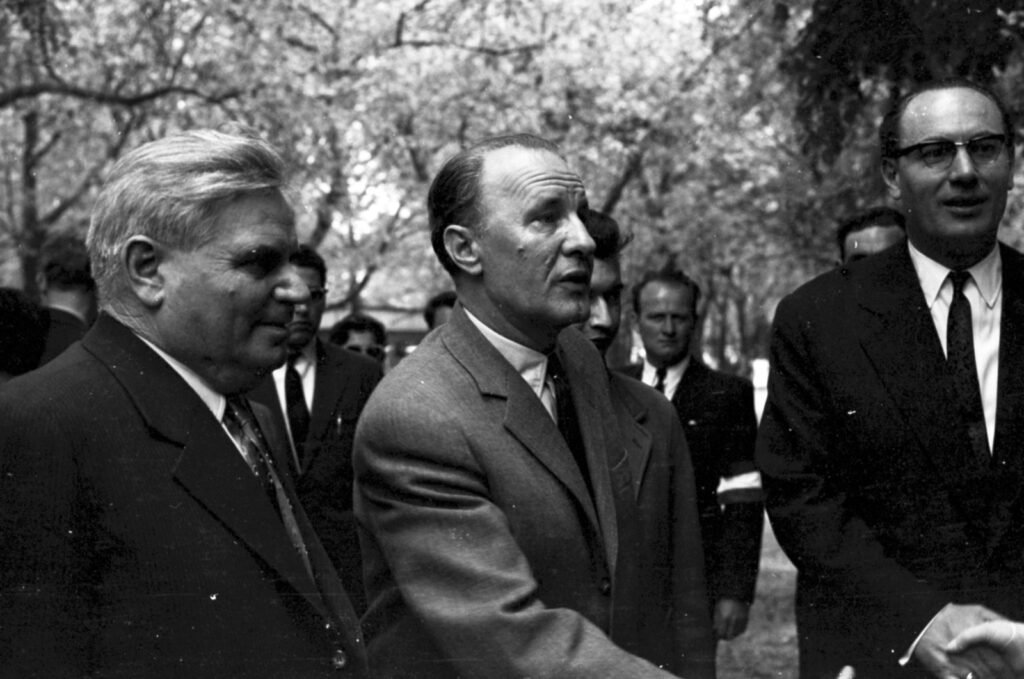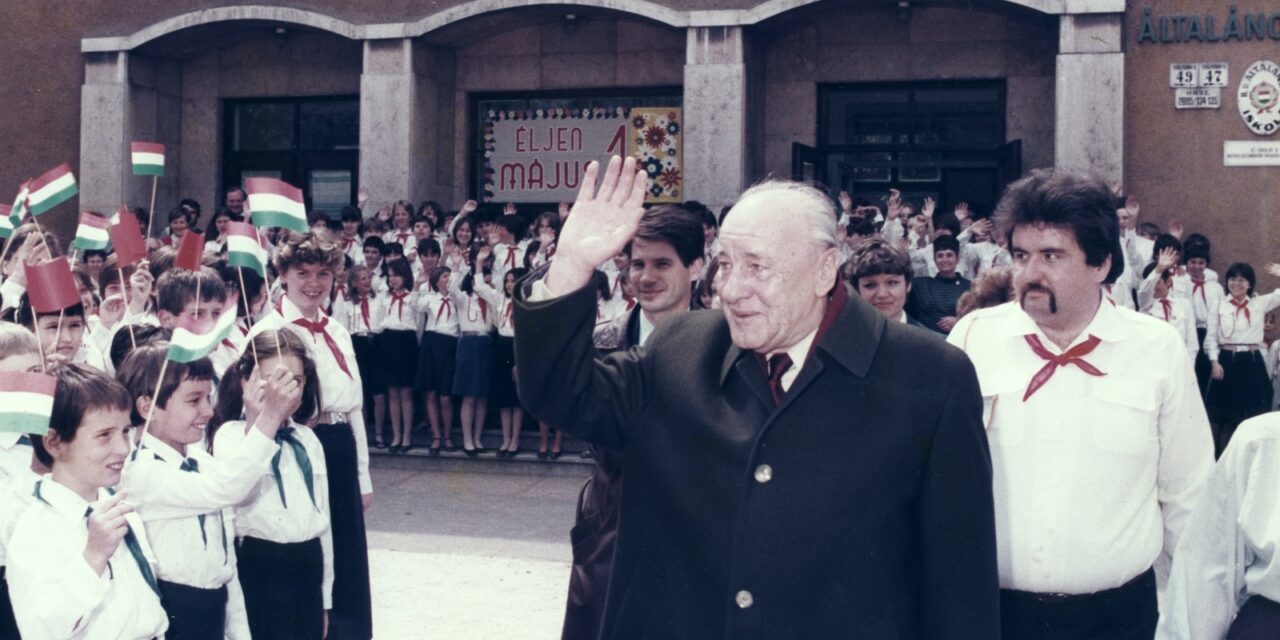The historian Zsuzsanna Borvendég's series was originally published on the PestiSrácok website, but there are certainly those who missed it. But those who haven't read all the parts should also read it again. Knowing the whole picture, can we understand how we got here?
The basis of the Kádár consolidation was the creation of the consumption-oriented world of "goulash communism". Kádár really offered a better life compared to the cruel terror Rákosi dictatorship And only for those who fell in line, or at least refrained from publicly rebelling.
Kádár was a more seasoned politician than Rákosi. With a sophisticated sense, he created a balance between political forces, he used selected technical means of power instead of open repression, but the framework of the dictatorship, the suffocating atmosphere of the Soviet occupation, and the vulnerability of the individual did not change. The treatment of social and economic problems was largely exhausted by the fact that the people were given "circus and bread", but beneath the "chattering surface" the depths fell into a silence that had perhaps never been seen before in our history.
In the earlier parts of the series, we got to know the forces forming in the background, we were able to accompany the development of the network from its Bolshevik roots through Nazi collaboration to the emergence of a specific economic elite. But all this was nothing compared to what began with the so-called Kadár consolidation. Kadár's policy of western opening crowned the expansion of the red octopus.
At first they even profited from fifty-six
Kádár and the Soviets had an elementary interest in attracting Western capital and technology: one had to stay afloat in the arms race, and the other had to somehow legitimize its power. And 1956 succeeded in all this.
It is tragic to say, but the murderers profited in the short term from the sacrifice of the guys from Pest, the determination of the workers' councils and national committees, and the struggle of the workers and university students. The blood of the Hungarian nation was used to open the "winged gates" to the West. even hid their own people in the ranks of the refugees : the state security agent network was present in the reception camps, integrated into the life of emigration, even though the organization was largely demoralized during the revolution, but they still had the capacity to do so. Even more despicable was the dispassionate cynicism with which the Soviet and Hungarian secret services pushed themselves like Trojan horses to the big corporations of the capitalist world, taking advantage of the sympathy for the Hungarians, which the images of the freedom struggle aroused in the citizens of the free world.
They turned to domestic specialists in the West with much more trust: they had access to technical, business data, technological descriptions, etc. earlier than their colleagues from the Soviet Union, and the intelligence took advantage of this.
Of course, the western business partners also profited from all this. The foundations of the foreign trade network had already been laid in the mid-1950s, the monopoly position offered by the Eastern markets was promising for the partners, the fact that they could sell products at a good price without competitors, which were already obsolete in the free world, and for which they could no longer find purchasing power there. It washes hands: if the profits are big enough, who cares about the suffering of a nation of a few million?

From left, János Péter, Bulgarian ambassador Krasztju Stojčev, Károly Kiss, János Kádár, Imre Dögei. 1958. Source: Fortepan.hu
The folktale hero Kádár
First, of course, it was necessary to create the figure of the "folktale hero" who even confronted the Soviets for his nation, while the blood was still dripping from Kádár's hands. Last week, you could read that for this purpose he even personally took part in a state security operation, but the sensitization started even earlier than that. 1957 , Otto Frei, a journalist living in Switzerland, assured his Hungarian colleague that "he sees that the situation will now rapidly normalize and that the government of János Kádár will be consolidated. He classified today's situation as already close to normal, and added that he has deep human respect for János Kádár, whom he considers a very honest and straightforward person.
Frei - who has extensive acquaintances - stated that a significant number of press correspondents in Western countries share his opinion. They find Kádár's forced situation tragic, that he was forced to come to power with the help of Soviet troops, they consider Kádár's humanity and character to be immaculate , and they also appreciate him for his steadfast behavior during his time in prison.
By the way, Frei expressed concern about whether János Kádár would have enough strength to enforce his ideas against the old functionary apparatus and, in his opinion, against the resurgent Stalinism in the Soviet Union," reads the report of a member of the state security journalist network operating in the West. Who could have forced Kádár to take power on the back of Soviet tanks? The quoted dialogue suggests that he sacrificed himself for the sake of the Hungarian nation.
Useful idiots come in handy
The conscious construction of Kádár thus began already at the beginning of 1957, when death sentences were still in full swing under the pen of the blood judges. Do you remember the cultural network described in the first parts of the series, the role of fellow intellectuals, and Lenin's useful idiots? Keeping this network alive and developing it was a strategic issue under Stalin and remained so after his death.
The formation and dissemination of the image of Kádár, surrounded by nostalgic light to this day, is "thanks" to this octopus; it was intended to be a showcase country that could play the role of "breakaway" riding on the general respect for the '56s. Taking advantage of this - and running through us - they opened wide the loopholes in the Iron Curtain: a mutually beneficial deal was made between the big capitalists and the socialist capital usurpers.
However, the complicit winking came at a very high price, which they paid with Hungarian society. From the 1960s, the red octopus became more and more corrupt, ideology was pushed into the background and it only counted on raw profit.
Re-export and party support
What was the everyday technique to start the money pump? Even between the two world wars, the Soviets developed their methods of covering up secret money transfers, which they used to support left-wing movements and the communist fraternal parties. One of the techniques of these secret capital movements was intermediary trade, or re-export. An intermediary - in this case a party company - was involved in the sale and purchase transaction, and he received a commission for his activity. After 1945, this method had to be adopted by the occupied countries as well, i.e. all satellite states used re-export to contribute to the financing of Soviet imperialist aspirations.
However, Hungary was an exception. Well, not from the point of view that he was left out of the "party", but on the contrary: we mostly used the introduction of intermediaries in the exchange of goods. We were a ferry country, literally.
Re-export not only provided a secret financing opportunity, but also proved to be suitable for evading political directives during the Cold War, since there was no direct delivery between the two actual business partners, so the identity of the real partner could be hidden from the authorities. It is a good opportunity to evade the embargo, i.e. another ideological reason why the operation of the system served the interests of Big Brother even if the operators worked more and more for their own pockets.

István Dobi, János Kádár and András Vitéz are the directors of BNV. (photo: Fortepan)
According to the system, the two western companies earned really well
The CIA suspiciously observed the extent to which Hungarian foreign trade preferred the use of re-export, and could not really find a rational explanation for it: according to their data, in 1955, intermediary trade accounted for 12% of foreign trade turnover in our country. For comparison, we can read some data in their report: in 1956, re-export deals concluded by the Soviet Union accounted for 7.4% of foreign trade, while in the GDR it was 1%, in Ceylon 5.5%, in the United Kingdom 3, 8%, but in Japan, for example, the proportion of such deals was only 0.3%. These data are only snapshots, but we can perceive the differences, moreover, the application of re-export really started to take off in our country from the sixties.
As surprising as it may seem, it was not primarily used to mediate between an Eastern and a Western company, but most of the time a Hungarian company got involved in sales between two Western companies. The Western buyer liked to purchase the goods through us because the trading companies owned by the Hungarian state - i.e. the impex companies - sold the product cheaper than what they bought it for. The loss was borne by the Hungarian state, while the dealer was able to pocket a kickback from the extra profit registered with the customer.
And the age of impex has come
But the corruption network was not only enriched by re-exports, since the sovietized system already contained the possibility of abuses. The production companies were closed off from the markets, they could not sell their products, nor could they buy raw materials and equipment for production. All of this was carried out by commercial companies with a state monopoly, the impex companies, who, however, were not burdened by the cost of production, i.e. they were not interested in finding cost-effective solutions. In most cases, the partner's tendency to corruption was the deciding factor when concluding deals.
Foreign trade companies have accumulated significant profits since the 1960s and have done everything possible to prevent these funds from entering the economic bloodstream. Péter Náray writes about this in his recollections of the time: "Konsumex was swimming in profits. I remember that I once happily reported to the chief accountant that we had won a high-value lawsuit against one of our important domestic partners, because luckily we noticed just in time, before the statute of limitations ran out, that he owed a large amount. The chief accountant shouted, "You are crazy. You artificially make a lawsuit, and you win it, when it is already very difficult for me to book the huge profits.«"
It really couldn't have been an easy task to hide these funds from the eyes of the state, while the foreign trade balance has regularly been in deficit since the 1960s. But the offshore activity that started in the early 1970s was a solution to this "problem" as well.
Source: PestiSrácok
Author: historian Zsuzsanna Borvendég
(Header image: Fortepan)













